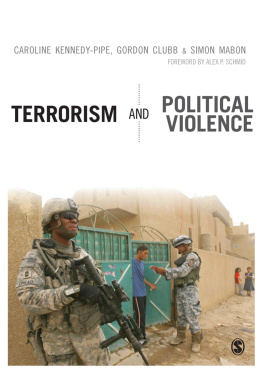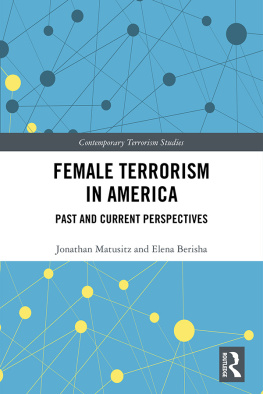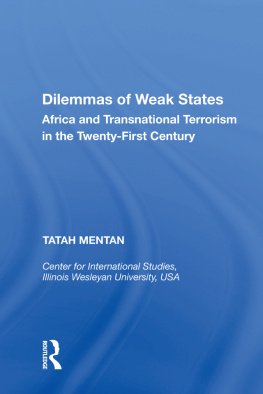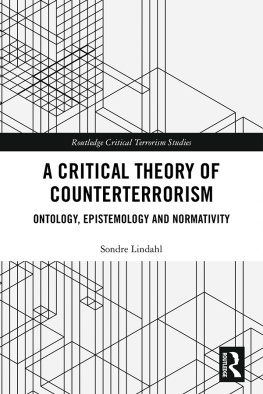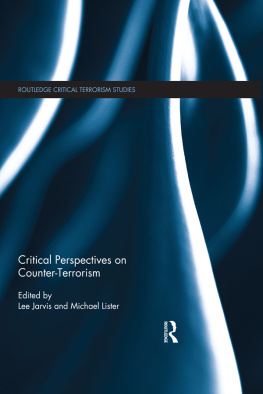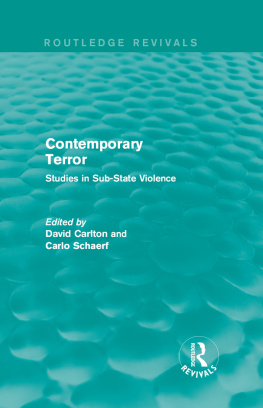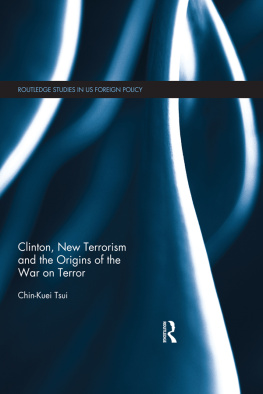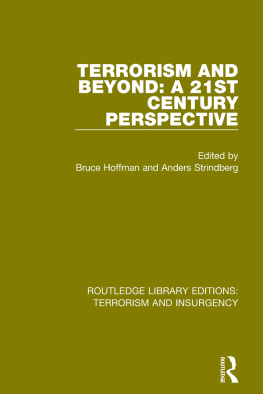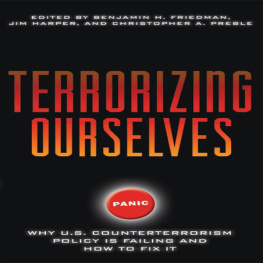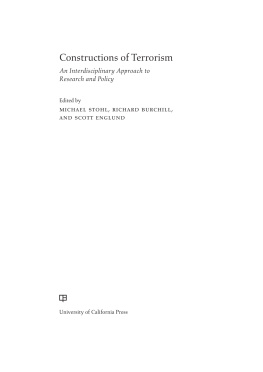
The Test of Terrorism
This book offers a timely and critical reflection on how states have responded to the test of terrorism in the long shadow of 9/11. Terrorism has become the hallmark of international relations in the early twenty-first century. This book provides a policy-focused analysis of how certain states have responded to its test by employing a range of viewpoints that encompass state level responses down to a close interrogation of the nebulous non-state actors who have orchestrated spectacular political violence in contemporary times. It engages with the challenges of terrorism from a variety of perspectives that include philosophical discourses, the perils of counterterrorism encapsulated in the death of Jean Charles de Menezes, learning in counterinsurgency, the effectiveness of counterterrorism spending, Al Qaeda's modus operandi and the threat posed by Boko Haram to Nigeria. This eclectic collection of chapters is an important contribution to the wide-ranging and contested debate about terrorism that has dominated the political discourse in the West since 2001.
This book was originally published as a special issue of Defense & Security Analysis.
Alastair Finlan is a Senior Lecturer in Strategic Studies in the Department of International Politics at Aberystwyth University, UK, who conducts research on the Global War on Terror. His latest book is Contemporary Military Culture and Strategic Studies: US and UK Armed Forces in the 21st Century (London: Routledge, 2013).
The Test of Terrorism
Responding to Political Violence in the Twenty-First Century
Edited by
Alastair Finlan
First published 2015
by Routledge
2 Park Square, Milton Park, Abingdon, Oxon, OX14 4RN, UK
and by Routledge
711 Third Avenue, New York, NY 10017, USA
Routledge is an imprint of the Taylor & Francis Group, an informa business
2015 Taylor & Francis
All rights reserved. No part of this book may be reprinted or reproduced or utilised in any form or by any eletronic, mechanical, or other means, now known or hereafter invented, including photocopying and recording, or in any information storage or retrieval system, without permission in writing from the publishers.
Trademark notice : Product or corporate names may be trademarks or registered trademarks, and are used only for identification and explanation without intent to infringe.
British Library Cataloguing in Publication Data
A catalogue record for this book is available from the British Library
ISBN 13: 978-1-138-79048-3
Typeset in Times New Roman
by Taylor & Francis Books
Publisher's Note
The publisher accepts responsibility for any inconsistencies that may have arisen during the conversion of this book from journal articles to book chapters, namely the possible inclusion of journal terminology.
Disclaimer
Every effort has been made to contact copyright holders for their permission to reprint material in this book. The publishers would be grateful to hear from any copyright holder who is not here acknowledged and will undertake to rectify any errors or omissions in future editions of this book.
Contents
| Julian Palmore and Martin Edmonds |
| Allan Orr |
| Alastair Finlan |
| James Hasik |
| Orlandrew E. Danzell and Steve Zidek |
| Shireen K. Burk |
| Samuel Oyewol |
The chapters in this book were originally published in Defense & Security Analysis, volume 29, issue 3 (September 2013). When citing this material, please use the original page numbering for each article, as follows:
Chapter 1
Editorial
Julian Palmore and Martin Edmonds
Defense & Security Analysis, volume 29, issue 3 (September 2013) pp. 175176
Chapter 2
Terrorism: a philosophical discourse
Allan Orr
Defense & Security Analysis, volume 29, issue 3 (September 2013) pp. 177187
Chapter 3
The perils of special approaches to caunterterrorism: the shooting of Jean Charles de Menezes in 2005
Alastair Finlan
Defense & Security Analysis, volume 29, issue 3 (September 2013) pp. 188202
Chapter 4
Learning in counterinsiirgency: what do we really know?
James Hasik
Defense & Security Analysis, volume 29, issue 3 (September 2013) pp. 203217
Chapter 5
Does counterterrorism spending reduce the incidence and lethality of terrorism? A quantitative analysis of 34 countries
Orlandrew E. Danzell and Steve Zidek
Defense & Security Analysis, volume 29, issue 3 (September 2013) pp. 218233
Chapter 6
Jihad or qatal? Examining Al Qaeda's modus operandi
Shireen K. Burki
Defense & Security Analysis, volume 29, issue 3 (September 2013) pp. 234252
Chapter 7
Boko Haram and the challenges of Nigeria's war on terror
Samuel Oyewole
Defense & Security Analysis, volume 29, issue 3 (September 2013) pp. 253262
Please direct any queries you may have about the citations to clsuk.permissions@cengage.com
This special edition of Defense & Security Analysis ( DSA ) focuses on terrorism, terrorists and circumstances under which terrorist attacks may be mitigated. It follows the special edition of DSA in December 2005 with articles on terrorism and missile defense. Around that period there were terrorist attacks in the UK and Spain and various international meetings with security personnel and police were held to discuss the evolving situation. The articles in the 2005 edition on terrorism contributed to that discussion.
In August 2006 in the UK, the British Security Services and her Aviation Authority imposed a strict ban on carrying liquids aboard aircraft, which led to major disruptions to air travelers originating or transiting the UK. The ban on quantities of liquids canned aboard aircraft spread quickly to the USA and other countries. Tourists planning to travel by air had to make other arrangements. This ban was prompted by a realization that small quantities of certain inert liquids could be mixed together and used as explosives in binary weapons so that if detonated aboard an aircraft in flight the damage caused would surely lead to the aircraft's destruction.
As background and context for this current edition of DSA we quote from the Editorial for Vol. 21, No. 4 (December) 2005.
This edition of Defense & Security Analysis comes more than four years after the terrorist attacks of September 11, 2001 in New York City and Washington DC. Those attacks and the anthrax incidents in September and October 2001 in Florida and Washington DC had as a result the United States declaring a global "War on Terror."
Since those devastating attacks, we have seen other terrorist bombings: in Madrid, on 11 March 2004, in London on 7 July and 21 July 2005, and other attacks in Iraq using explosive devices and occurring at this time almost on a daily basis. Thus, terrorism is at the top of any agenda on defense and security analysis and it plays a special role in our thinking about ways to deter and disrupt terrorists' activities. Of the articles published in the 2005 edition, one stands out today for the importance of the subject of its analysis: Matenia Sirseloudi's article on predicting terrorists' attacks which considers this extremely important problem from a sociological point of view.


